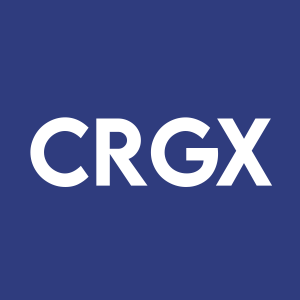CARGO Therapeutics Announces ASH 2024 Abstract on CRG-023, a Tri-specific CAR T, Highlighting Innovative Construct Design and Durable Anti-B-Cell Lymphoma Activity
Rhea-AI Summary
CARGO Therapeutics announced its first abstract on CRG-023, a novel tri-specific CAR T-cell therapy targeting CD19, CD20, and CD22 B-cell antigens, will be presented at ASH 2024. CRG-023 is designed to provide durable responses by addressing common relapse causes in existing CAR T therapies.
The preclinical data demonstrated sustained anti-tumor activity, resistance to exhaustion during repeated tumor challenges, and robust anti-lymphoma activity at low doses. The therapy features a unique tri-cistronic design expressing three independent CARs from a single vector, each with distinct co-stimulatory domains. The company is actively preparing for an IND submission based on encouraging results.
Positive
- Novel tri-specific CAR T design targeting multiple B-cell antigens (CD19, CD20, CD22)
- Demonstrated sustained anti-tumor activity in preclinical studies
- Showed efficacy at low CAR T dose levels
- Maintained activity even when only single antigen is expressed
- Advancing toward IND submission
Negative
- Still in preclinical stage
- Clinical efficacy in humans yet to be demonstrated
News Market Reaction – CRGX
On the day this news was published, CRGX declined 3.30%, reflecting a moderate negative market reaction.
Data tracked by StockTitan Argus on the day of publication.
- CRG-023 is a CD19-, CD20-, CD22-targeting tri-specific CAR T product candidate designed with the goal of providing more patients with a broad range of B-cell malignancies with durable responses by addressing several known causes of relapse, resulting in a potential best-in-class CAR T-cell therapy -
- First of its kind, tri-cistronic CAR T to express three independent CARs from a single vector, with each CAR having a distinct co-stimulatory domain –
- Data demonstrated sustained anti-tumor activity and a lack of functional exhaustion during repeated challenge from tumor cells, preservation of T cell memory phenotype relative to controls, sustained tumor clearance when only a single antigen is expressed, and robust in vivo, anti-lymphoma activity at low CAR T dose levels -
- Abstract will be presented during poster presentation at ASH, Saturday, December 7, 2024; 5:30 PM - 7:30 PM PST -
SAN CARLOS, Calif., Nov. 05, 2024 (GLOBE NEWSWIRE) -- CARGO Therapeutics, Inc. (Nasdaq: CRGX), a clinical-stage biotechnology company positioned to advance next generation, potentially curative cell therapies for cancer patients, today announced that its first abstract on CRG-023 will be presented as a poster at the upcoming 66th American Society of Hematology (ASH) Annual Meeting and Exposition, taking place December 7-10, 2024, in San Diego, California.
“We are unique in our approach to optimizing many aspects of a cell therapy for patient benefit. The advancement of CRG-023 underscores our sophisticated cell-engineering capabilities and importantly, our pipeline potential in next-generation CAR T-cell therapies that are designed to deliver multiple, therapeutically beneficial transgene “cargo” from a single vector,” said Gina Chapman, President and Chief Executive Officer of CARGO Therapeutics. “CRG-023 is the culmination of a rigorous two-year effort and squarely in line with our mission to develop best-in-class, and potentially curative CAR T-cell therapies for patients with cancer. Based on the encouraging pre-clinical data, we are actively preparing for an IND submission.”
CRG-023 is designed with the goal of providing more patients with durable responses by addressing several known causes of relapse associated with existing CAR T-cell therapies, such as tumor antigen loss (e.g., CD19), loss of co-stimulation (e.g., CD58) and T-cell exhaustion. CRG-023 is a first of its kind CAR T product candidate with a construct that targets three B-cell lineage antigens (CD19, CD20, and CD22) via three separately expressed CARs. For the CD19 and CD20 CARs, new scFv binders were selected for optimal CAR-mediated activity following an extensive antibody discovery and screening campaign. Each CAR has a CD3ζ signaling domain and a distinct co-stimulatory domain. The CD20 CAR design, which incorporates a CD2 costimulatory domain, was informed by observations that CD58 expression loss is associated with poor response outcomes to CD19 CAR T-cell therapy. Intentional engineering and optimization of the final construct sought to limit onset of functional T-cell exhaustion and to sustain performance across a range of antigen expression profiles in order to prevent antigen escape.
“CAR T therapy has been curative for some but not all who are afflicted with certain lymphomas, leukemias and multiple myeloma,” said Michael Ports, Chief Scientific Officer of CARGO Therapeutics. “Knowledge is increasing about mechanisms that contribute to poor outcomes to cell therapy. At CARGO, we apply this knowledge to the holistic design of CARs and to other engineered transgenes to advance the potential of cell therapies. For CRG-023, our team optimized components of each CAR, including selection of new binders and incorporation of CD2 co-stimulation to limit onset of T-cell exhaustion that may affect outcomes in high disease burden patients. To address antigen escape, three optimally designed CARs were then engineered into a tri-cistronic construct. Importantly, each individual CAR in the tri-cistronic format independently sustained meaningful anti-tumor activity when only a single antigen was expressed. We are encouraged by the mechanistic insights that will be presented by our team at ASH, and we look forward to translating these results to the clinic.”
The abstract reviews the CRG-023 construct design, including the discovery of novel CD19 and CD20 scFv binders, selected for enhanced CAR performance, that were combined with the existing CD22 scFv binder used in firicabtagene autoleucel (firi-cel). The iterative engineering of the construct allowed for the selection of the optimal costimulatory domain configuration and optimal assemblage in a unique tri-cistronic lentiviral vector designed to maximize durable anti-tumor response. Importantly, in these mouse models, CRG-023 CAR T cells were able to sustain durable in vitro anti-tumor activity despite repeated tumor challenge against tumor cells expressing all or any one of the three antigens. Superior tumor control was observed as compared to benchmark CAR T cells, without increased cytokine secretion and while sustaining a less effector-differentiated phenotype. In vivo studies showed that CRG-023 CAR T cells were highly active and able to clear Raji lymphoma tumor cells expressing the three target antigens in a dose-response manner and down to the lowest dose tested (1x105 CAR+ cells). Additionally, the data showed that CRG-023 T cells were able to durably clear tumor cells in models mimicking antigen loss in contrast to mono-CAR T cells such as FMC63-containing CD19 CAR T cells.
The ASH abstract is now available at www.hematology.org. Details of CARGO’s presentation are as follows:
Title: CRG-023 Is a Novel Tri-Specific CAR T Product Candidate Engineered to Prevent Antigen Escape and Sustain Durable Anti-Tumor Functionality Against B-Cell Malignancies
Presenter: Idit Sagiv Barfi, PhD
Publication #2035
Session: 702. CAR-T Cell Therapies: Basic and Translational: Poster I
Session Date & Time: Saturday, December 7, 2024; 5:30 PM - 7:30 PM Pacific Time
Room: San Diego Convention Center, Halls G-H
About CARGO Therapeutics
CARGO Therapeutics, Inc. is a clinical-stage biotechnology company positioned to advance next- generation, potentially curative cell therapies for cancer patients. CARGO’s programs, platform technologies, and manufacturing strategy are designed to directly address the limitations of approved cell therapies, including limited durability of effect, safety concerns and unreliable supply. CARGO is currently evaluating firicabtagene autoleucel (firi-cel), an autologous CD22 chimeric antigen receptor (CAR) T-cell therapy candidate, in a potentially pivotal Phase 2 clinical study in patients with large B-cell lymphoma (LBCL) whose disease relapsed or was refractory (R/R) to CD19 CAR T-cell therapy. CARGO has developed proprietary cell engineering platform technologies which it leverages to develop a pipeline of programs that incorporate multiple transgene therapeutic “cargo” designed to enhance CAR T-cell persistence. This includes the CRG-023 program, which incorporates a novel tri-specific CAR T with CD2 co-stimulation that is designed to provide more durable responses for patients with a broad range of B-cell malignancies by addressing several known causes of relapse, resulting in a potential best-in-class CAR T-cell therapy. CARGO’s leadership and team have significant experience in developing, engineering, manufacturing, and commercializing oncology and cell therapy products. For more information, please visit the CARGO Therapeutics website at https://cargo-tx.com/.
Follow us on LinkedIn: CARGO Therapeutics
Follow us on X (Twitter): @CARGOTx
About CRG-023
CRG-023 is a tri-specific CAR T designed with the goal of providing more patients with a broad range of B-cell malignancies with durable responses by addressing several known causes of relapse associated with existing CAR T-cell therapies such as tumor antigen loss (e.g., CD19), loss of co-stimulation (e.g., CD58) and T cell exhaustion, resulting in a potential best-in-class CAR T-cell therapy.
CRG-023 targets the B-cell lineage antigens (CD19, CD20, CD22) via tri-cistronic expression of 3 distinct CARs from a single lentiviral vector, each with its own co-stimulatory domain – a significant engineering accomplishment that differentiates the product candidate from other CAR T-cell therapies currently in development or in the market. One co-stimulatory domain incorporates CD2 signaling into the tri-specific CAR T cell, the design of which has been informed by immune-evasion and CAR T cell resistance mediated by the loss of CD58 (the ligand of the CD2 co-stimulatory receptor). Importantly, CRG-023 incorporates new, human scFVs binders from an extensive antibody discovery and screening campaign for both CD19 and CD20. The CD22-targeting CAR employs the human scFv m971 used in firicabtagene autoleucel, firi-cel. CARGO is currently advancing the program to IND.
Cautionary Note Regarding Forward-Looking Statements
This press release contains forward-looking statements within the meaning of Section 27A of the Securities Act of 1933, as amended, and Section 21E of the Securities Exchange Act of 1934, as amended. In some cases, you can identify forward-looking statements by terminology such as “aim,” “anticipate,” “assume,” “believe,” “contemplate,” “continue,” “could,” “design,” “due,” “estimate,” “expect,” “goal,” “intend,” “may,” “objective,” “plan,” “positioned,” “potential,” “predict,” “seek,” “should,” “target,” “will,” “would” and other similar expressions that are predictions of or indicate future events and future trends, or the negative of these terms or other comparable terminology. All statements other than statements of historical facts contained in this press release are forward-looking statements. These forward-looking statements include, but are not limited to, statements about: the initiation, timing, progress, advancement, and results of CARGO’s clinical and preclinical programs; the potential benefits of CARGO’s product candidates; and CARGO’s strategic plans for its business and product candidates. Forward-looking statements are not guarantees of future performance and are subject to risks and uncertainties that could cause actual results and events to differ materially from those anticipated, including, but not limited to, risks and uncertainties related to: the company’s ability to obtain necessary capital to fund its programs; the early stages of development of the company’s product candidates and the product candidates involving novel technologies; clinical and preclinical development being a lengthy and expensive process with uncertain outcomes; interim, “topline” and preliminary data from the company’s clinical trials and preclinical studies as well as any favorable data from trials conducted by third-parties, including Stanford University or the NCI, may not be replicated in the company’s clinical trials or predictive of future results; the company’s ability to obtain regulatory approval of and successfully commercialize its product candidates; any undesirable side effects or other properties of the company’s product candidates; the company’s reliance on third-party suppliers and manufacturers, including CROs; the outcomes of any future collaboration agreements; and the company’s ability to adequately maintain intellectual property rights for its product candidates. For a detailed discussion of the risks and uncertainties that could cause actual results to differ from those expressed in these forward-looking statements, as well as risks relating to CARGO’s business in general, please refer to the risk factors identified in the Company’s filings with the Securities and Exchange Commission (SEC), including but not limited to its Quarterly Report on Form 10-Q for the quarter ended June 30, 2024 filed on August 12, 2024. Any forward-looking statements that the company makes in this press release are made pursuant to the Private Securities Litigation Reform Act of 1995, as amended, and speak only as of the date of this press release. Except as required by law, the company undertakes no obligation to publicly update any forward-looking statements, whether as a result of new information, future events or otherwise. CARGO’s results for the quarter ended June 30, 2024 are not necessarily indicative of its operating results for any future periods.
Media Contact:
Kimberly Muscara
kimberly@redhousecomms.com
Investor Contact:
Jessica Serra
jserra@cargo-tx.com
Laurence Watts
laurence@newstreetir.com








